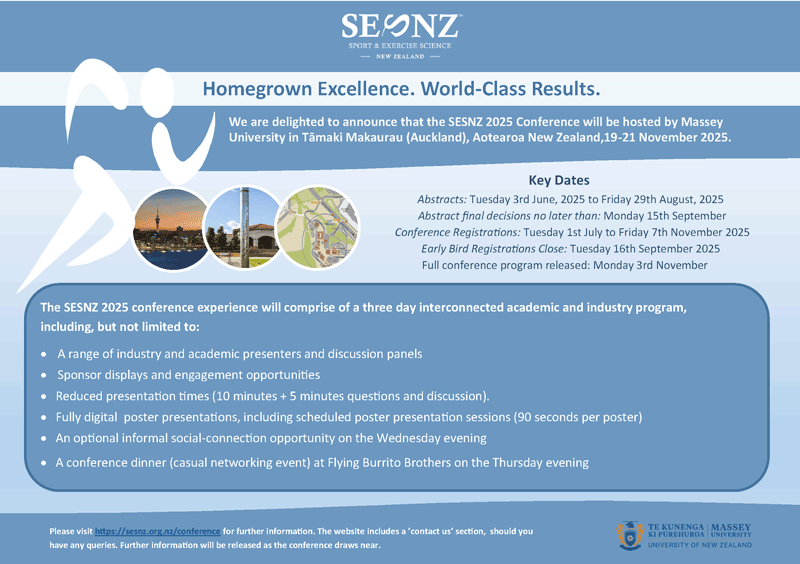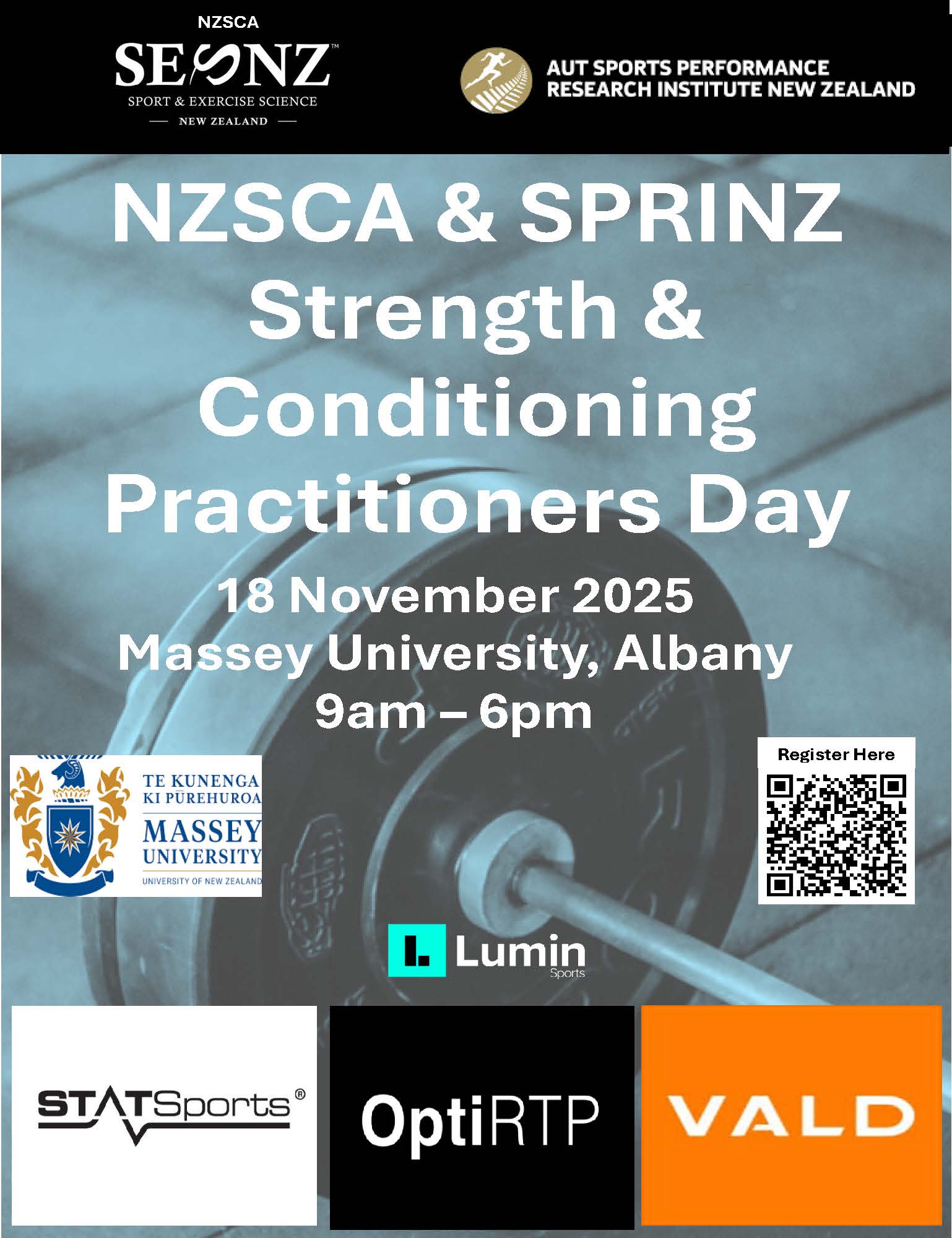Conference Registration


Conference Registration
Registration is now closed.
Tuesday: S&C Practitioner Day: 9AM Start and finish at 6PM with Social hour
Wednesday: 12PM Opening + 5.30PM Welcome Reception
Thursday: Start day 9AM finish at 5PM + conference dinner at 5:30PM, Flying Burrito Brothers
Friday: Start day 9AM and finish at 1.30PM
Please have your SESNZ Member number ready for checkout (your can find this in the Member’s Area)
ISPAS members to email natmanager@sesnz.org.nz for registration.
Any one day or variation for practitioners can request an invoice, $200 for full day Thursday or $250 for non-member.
